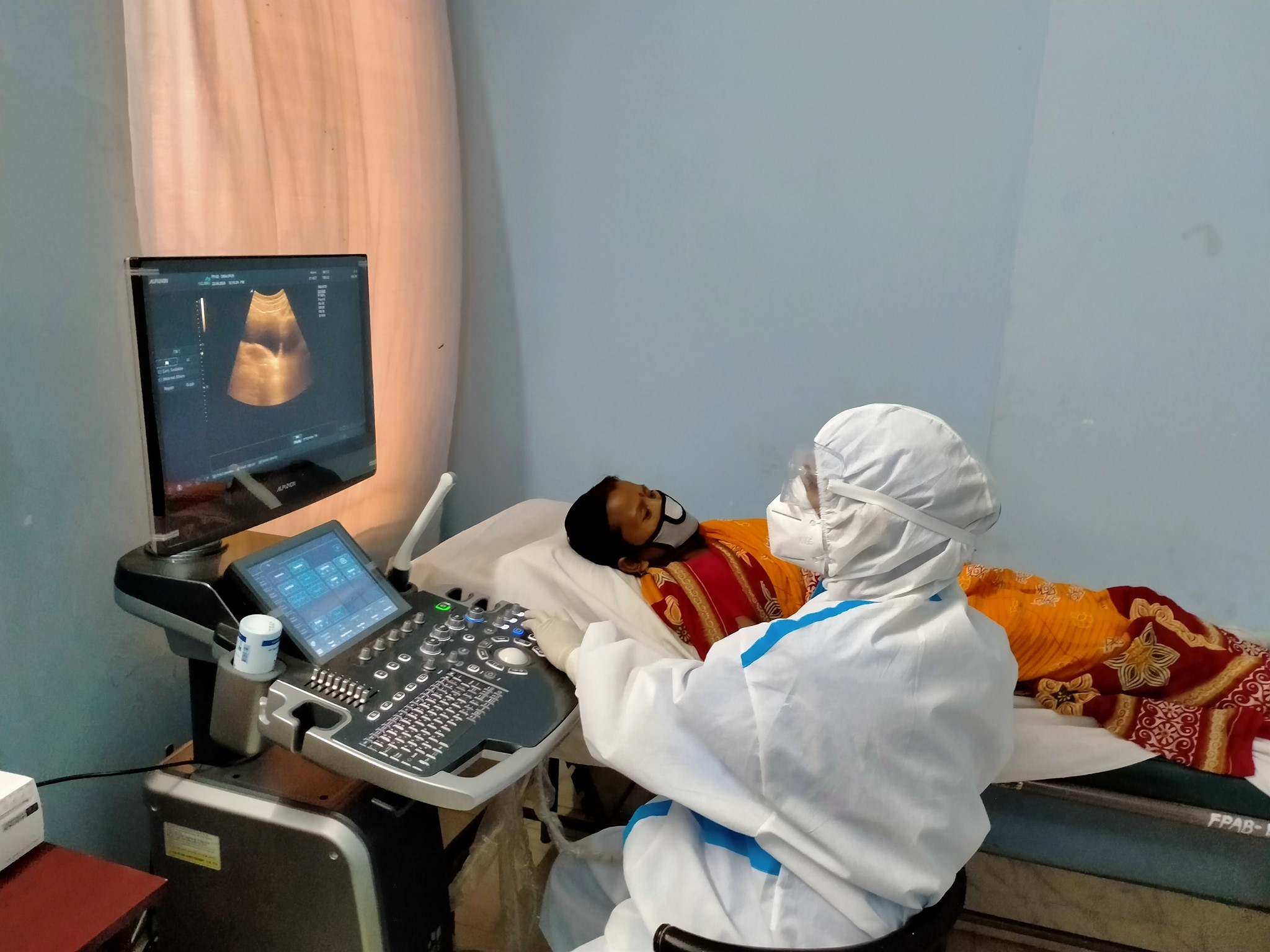Health inequalities continue to affect the most vulnerable and disadvantaged amongst us, who bear the brunt of poor healthcare provision and inequitable access to quality healthcare – especially communities of color and marginalized groups. Health inequalities remain a threat to realizing gender and racial equality, poverty reduction, job security, financial prosperity, and the right to lead a healthy life.
Societal and economical disadvantages disproportionality impact communities of color, as well as vulnerable and marginalized individuals, including refugees and migrants, people living with disabilities, and members of LGBTI+ communities, which inevitably leads to poor health outcomes amongst these groups.
Worsening health inequalities in times of COVID-19
Historically, pandemics have been experienced unequally, with higher rates of infection and mortality amongst the most disadvantaged communities. Evidence suggests that these inequalities are being mirrored today in the COVID-19 pandemic [1].
The disproportionate burden of the pandemic has revealed glaring inequities amongst racial minorities [2], and women continue to be disproportionally negatively affected by socio-economic hardships made worse by the immediate and long-term consequences of COVID-19. Pre-existing gender gaps have amplified the crisis asymmetrically between men and women, even as women have been at the frontlines of managing the crisis as essential workers [3]. The Agreed Conclusions of the 65th session of the UN Commission on the Status of Women (CSW65) acknowledge that the COVID-19 pandemic is “deepening pre-existing inequalities that perpetuate multiple and intersecting forms of discrimination, as well as racism, stigmatization and xenophobia”.
The COVID-19 pandemic also caused global poverty to rise for the first time in over 20 years, and the World Bank predicts that an additional 150 million people will be considered as extremely poor by 2021 – as disruptions caused by the pandemic worsen the consequences of conflicts and climate change.
Greater solidarity in response to 'vaccine apartheid'
The world has pledged to 'leaving no one behind' when it committed to achieving Universal Health Coverage (UHC) by 2030 [4]. The COVID-19 pandemic is a stark reminder that strong and resilient health systems are key to addressing health crises, and that health inequalities quickly become amplified when adequate resources are not available.
Ensuring equitable, affordable, timely and universal access to all countries to vaccines should be a guiding principle in our response to the pandemic – however concerns over disparities in terms of vaccine distribution may prevent the elimination of COVID-19 and further hamper progress in the realization of the 2030 Agenda for Sustainable Development, as noted in the outcomes of the 46th Session of the UN Human Rights Council.
Several months into the largest vaccination campaign in world history, global rollout has been marked by deep inequity. Wealthier nations struck early deals for vaccines still in development, some covering their populations several times over, inflating competition and leaving populations in lower-income economies at the back of the vaccine line.
In the absence of a global plan to ensure universal access to COVID-19 vaccines, initiatives such as COVAX ensure that equitable access is possible among the world's poorest countries. Despite some countries showing solidarity through bilateral arrangements to share their vaccine pool, to date only 0.1% of vaccine doses have been administered amongst lower-income countries.
To ensure more equitable strategies to access vaccines, we need bold leadership and an end to ‘vaccine nationalism’. We must ensure that COVID-19 vaccines can rapidly become readily available to all front-line health workers, including those working in non-government facilities and in mobile or outreach community-based services, and across groups that are currently excluded from, or experiencing unequal access to, vaccination programmes, and especially in countries which are currently experiencing scarce access to global vaccines pools.
Build back fairer
On World Health Day, we are calling for greater solidarity and urgent action to address and eliminate health inequalities that continue to deny people the right to achieve their full potential and, as stated in the WHO’s constitutional principles, “the enjoyment of the highest attainable standard of health is one of the fundamental rights of every human being without distinction of race, religion, political belief, economic or social condition.”
Faced with new challenges posed by the current pandemic, the global community has the opportunity to build back better and fairer processes that ensure the inclusion of those who are being left behind due to healthcare inequalities. It is critical for country leaders to invest in strengthening health systems and to address societal and economic barriers that lead to poor health outcomes, especially amongst those most vulnerable and marginalized. They also must be ready to invest in strengthening current preparedness and mitigation measures to help alleviate the potential impact of future healthcare crises.
We urge global leaders to do their part in ensuring no one is left behind, and to help build a fairer and healthier world for everyone. IPPF and its Member Associations are committed to ensuring no-one is left behind and that those who need healthcare - no matter where they are - can access quality and affordable health services, including sexual and reproductive health services, and receive the care they need to live a healthy life.
References:
- Bambra, Clare, et al. "The COVID-19 pandemic and health inequalities." J Epidemiol Community Health 74.11 (2020): 964-968.
- Millett, Gregorio A., et al. "Assessing differential impacts of COVID-19 on black communities." Annals of epidemiology 47 (2020): 37-44.
- World Economic Forum. “Global Gender Gap Report” March 2021: Geneva. Available at http://www3.weforum.org/docs/WEF_GGGR_2021.pdf
- United Nations, Political Declaration of the High-level Meeting on Universal Health Coverage “Universal health coverage: moving together to build a healthier world” A/RES/74/2. 2019, United Nations: New York
when









